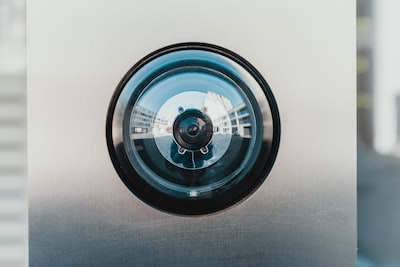In an increasingly digital age, where electronic communication has become an integral part of our daily lives, the importance of proofreaders in email security cannot be overstated. With the rapid proliferation of cyber threats looming over businesses and individuals alike, safeguarding sensitive information has become paramount.
However, even with the most advanced email security systems in place, the human touch remains essential to ensuring the integrity and confidentiality of electronic correspondence. From catching grammatical errors that can inadvertently disclose confidential information to identifying phishing attempts, proofreaders play a crucial role in fortifying email security.
As such, organizations must recognize the value of integrating skilled proofreaders into their robust email security protocols to establish a comprehensive defense against potential threats.
In the ever-changing landscape of digital communication, the importance of proofreaders in email security cannot be overstated. With the rise of advanced technologies, the risks and vulnerabilities associated with email correspondence have multiplied exponentially.
From phishing attacks to malware-infected attachments, the threats are more sophisticated and elusive than ever before. However, amidst this perplexing web of cybercrime, proofreaders emerge as the unsung heroes, armed with their keen eye for detail and a profound understanding of grammar and syntax.
Their role in enhancing email security goes beyond mere spell-checking or grammar correction; it encompasses a comprehensive approach to identifying potential risks, ensuring clarity of communication, and safeguarding information. With their burstiness of skills, proofreaders navigate through the labyrinth of technical terms, distinguishing legitimate emails from dubious ones, preventing breaches, and fortifying the cyber defenses of organizations.
This article delves into the fascinating world of proofreaders and how their mastery of advanced technologies can contribute to the preservation of email security in an increasingly interconnected and vulnerable digital realm.
Table of Contents
Introduction to email security challenges
Email has become a primary form of communication in today’s digital world, both personally and professionally. However, it also poses security challenges.
Phishing scams and malware attachments threaten the personal and financial information of email users. That’s where proofreaders come in.
With their keen attention to detail and understanding of grammar and language, proofreaders can enhance email security. They scrutinize emails for suspicious links or attachments, adding an extra layer of protection against phishing attempts and cybercrimes.
But how can proofreaders go further and use advanced technologies to boost email security? In this article, we’ll explore the role of advanced technologies in email security and how proofreaders can utilize them to safeguard sensitive information. By harnessing machine learning algorithms and email filtering systems, proofreaders can create a secure and reliable email environment.
Join us as we delve into the world of email security challenges and discover how proofreaders are at the forefront of this essential task.
Role of proofreaders in enhancing email security
Email security is extremely important in today’s digital age. Email has become the main way people communicate, both personally and professionally.
However, with cyberattacks and data breaches becoming more advanced, traditional security methods are no longer enough. Proofreaders can help strengthen email security by using advanced technologies.
They can use cutting-edge software and AI-powered tools to detect and prevent security vulnerabilities in emails. This includes identifying suspicious links and attachments and ensuring proper encryption protocols.
By collaborating with advanced technologies, proofreaders can greatly enhance the overall security of electronic communication. Protecting sensitive data is a priority for businesses and individuals, and proofreaders and advanced technologies are essential in achieving this.
It is not just a goal but an imperative to enhance email security through the expertise of proofreaders and innovative tools.
Overview of advanced technologies in email security
In today’s digital era, email has become one of the primary modes of communication. However, along with its convenience comes the looming threat of cyber attacks and data breaches.
To combat these risks, proofreaders have found innovative ways to enhance email security through the utilization of advanced technologies. These technologies act as a defense mechanism, detecting and mitigating potential security threats, such as malware and phishing attempts.
By incorporating AI algorithms and machine learning, proofreaders can analyze email content for suspicious patterns and attachments, ensuring that only legitimate communications reach recipients. According to a study conducted by Cybersecurity Ventures, organizations investing in advanced email security technologies have experienced a significant reduction in cyber attacks.
The integration of proofreaders in this process not only adds an extra layer of protection but also encourages a culture of secure communication. Source
Benefits of integrating advanced technologies for proofreaders
Using advanced technologies to enhance email security with the support of proofreaders has many benefits. In a world where cyber threats are common, organizations must prioritize protecting sensitive information.
By integrating advanced technologies into their proofreading processes, companies can significantly reduce the risk of data breaches through emails. These technologies can help identify potential phishing attacks, malware, and other suspicious activities before they harm the organization.
Additionally, proofreaders trained in these technologies can ensure that emails are well-written, error-free, and effectively convey the intended message. This not only enhances the professionalism of the organization but also reduces miscommunication and misunderstandings.
The combination of advanced technologies and proofreaders’ expertise not only enhances email security but also improves internal and external communication processes.
Examples of advanced technologies used by proofreaders
Email security is a major concern in today’s digital age. Individuals and businesses need to use advanced technologies to protect sensitive information from cyber threats.
Proofreaders, who are known for their grammar skills, are finding new ways to enhance email security. One technology they use is AI-powered language processing tools.
These tools can detect malicious intent in emails by analyzing the content and metadata. They can also identify phishing attempts or suspicious attachments.
Proofreaders can also use machine learning algorithms to spot patterns of suspicious behavior based on past email interactions. By combining their linguistic skills with cutting-edge technologies, proofreaders can protect sensitive data from being compromised.
This integration not only ensures error-free emails but also protects them from potential cyber threats. Enhancing email security through proofreaders and advanced technologies is a promising solution for our digital needs.
Conclusion and recommendations for improving email security
As email becomes more common in our daily lives, it is crucial that we address the issue of security. With the increase in cyber threats and data breaches, it is important to integrate proofreading and advanced technologies to enhance email security.
Proofreaders ensure that sensitive information is protected and messages are free from grammatical errors, which can compromise security. By using advanced technologies like machine learning and artificial intelligence, proofreaders can detect and flag potential malicious content, thus improving email security.
Encryption protocols can also be implemented to provide an extra layer of protection for sensitive data. Organizations must invest in strong email security measures and promote heightened awareness among employees.
By continuously improving and updating our email security practices, we can safeguard our information and protect against potential threats.
Enhancing Email Security and Streamlining Workflow: The Game-Changing Potential of Cleanbox for Proofreaders
Cleanbox, a groundbreaking tool that aims to revolutionize your email experience, holds immense potential for proofreaders in their quest for advanced email security. With its state-of-the-art AI technology, Cleanbox efficiently sifts through incoming emails, not only decluttering your inbox but, more importantly, safeguarding it against phishing and malicious content.
As a proofreader, it is crucial to focus on the priority messages, and this is where Cleanbox truly shines. By categorizing and sorting emails, Cleanbox allows you to quickly identify and prioritize the messages that require your attention the most.
Its ability to ward off harmful content ensures that your workflow remains uninterrupted and that you can concentrate solely on proofreading. Cleanbox is the ultimate solution for those seeking to streamline their email experience while enhancing their email security—an indispensable tool for any proofreader in today’s digital landscape.
Frequently Asked Questions
Proofreaders can use technologies like machine learning algorithms and artificial intelligence tools to enhance email security. These technologies can analyze email content and attachments for potential threats such as malware or phishing attempts.
Yes, proofreaders can detect and prevent email spoofing by using technologies like DMARC (Domain-based Message Authentication, Reporting, and Conformance) which verifies that the sender’s domain is authentic and prevents unauthorized senders from impersonating a domain.
Proofreaders can ensure email confidentiality by using encryption technologies such as PGP (Pretty Good Privacy), which encrypts the email content and prevents unauthorized access to sensitive information.
Yes, proofreaders can use tools like grammar and spell-checking software that can automatically scan emails for grammar and spelling errors, allowing them to provide accurate and error-free communication.
Yes, proofreaders can use advanced technologies to detect email fraud attempts. These technologies can flag suspicious emails, identify phishing attempts, and raise alerts to prevent users from falling victim to fraud.
The Long and Short of It
In an age where information is transmitted instantaneously and privacy is a constant concern, the role of email security has taken center stage. As proofreaders, entrusted with valuable content and sensitive details, ensuring the confidentiality and integrity of our electronic communication is paramount.
With the rising sophistication of cyber threats, it is imperative for proofreaders to adopt advanced email security measures that match the evolving landscape. By leveraging state-of-the-art encryption protocols, implementing robust firewalls, and implementing stringent access controls, we can fortify our digital fortress against malicious actors.
From malicious attachments to phishing attempts, the risks are ever-present, calling for a proactive approach in safeguarding our email communications. Advanced email security solutions offer a multi-layered defense system, capable of detecting and neutralizing even the most insidious threats.
By coupling cutting-edge technology with meticulous user awareness training, proofreaders can navigate the treacherous waters of cyberspace with confidence and peace of mind. Investing in advanced email security is not just an option; it is an imperative for those who value professionalism and take their responsibilities seriously.
In an era fraught with uncertainty, it is our duty as proofreaders to embrace these robust security measures, shielding ourselves and our clients from potential harm. In doing so, we not only protect our own interests but also safeguard the integrity of the written word, ensuring that the trust placed in our hands remains unblemished.
Stay proactive, stay informed, and stay secure – for only then can we truly claim mastery over our digital domain.








 in Wyoming
in Wyoming